CSA History
In the basement of the YMCA in Chicago, on a cold November day, a group of Christians gathered for a conversation that would later be described as one of the most influential gatherings of Christians that decade. The group wrestled with the teachings that were emerging from Latin American church leaders. Leaders like Samuel Escobar and Rene Padilla challenged a narrow definition of Christian faithfulness, and encouraged the church to think about its role and witness in broader society—particularly in the area of justice. In response, Ron Sider, along with the others, created the “The Chicago Declaration of Evangelical Social Concern,” which specifically called for a rejection of racism, economic materialism, economic inequality, militarism, and sexism.
Ronald J. Sider created Evangelicals for Social Action, now Christians for Social Action (CSA), as a network to fulfill those commitments made in the Chicago Declaration. CSA is a “think-and-do” tank that helps Christian communities cultivate a faith-fueled commitment to justice. For five decades, Sider and the organization he founded have been synonymous with faithful engagement in the spheres of education, politics, and the church, addressing both global and domestic issues, building broad coalitions, and engaging in courageous civil dialogue with people across the theological and political spectrums.
As scholar, popularizer, and activist, Sider embodied the holistic approach of CSA, which invites everyone to embrace the whole-life Gospel of Jesus Christ and equips an intergenerational movement with the spiritual and intellectual tools to catalyze social flourishing at both a systemic and a personal level. For half a century CSA has addressed racial, economic and political injustice at home and abroad. CSA is currently led by Nikki Toyama-Szeto.
Five Decades of Christian Social Action
1970s - A Time of Beginnings
Ron Sider spearheads “The Chicago Declaration of Evangelical Social Concern,” a call to reject racism, militarism, economic inequality, and sexism.
1973
“The Chicago Declaration” is signed by a broad range of 40 evangelical leaders committed to strengthening evangelical social concern. These include scholar/popularizer Ron Sider, theologians Carl Henry and Richard Mouw, educator/scholars Frank Gaebelein and Nancy Hardesty; and pastor/activists John Perkins and Jim Wallis.
1977
Rich Christians in an Age of Hunger is published. A testament to its timeless message, it is still in print today, with the revised and expanded edition coming out in 2015. It made Christianity Today’s list of the 100 most influential 20th-century books in religion and has since sold over 400,000 copies in nine languages.

1978
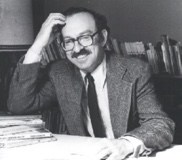
1980s - Political Activism
ESA’s political involvement rises to the forefront.
1983
Ron Sider debates Jerry Falwell on CNN about ESA’s campaign for a bilateral nuclear freeze. The New York Times interviews Sider, who calls nuclear armament “the greatest moral question of our time.”
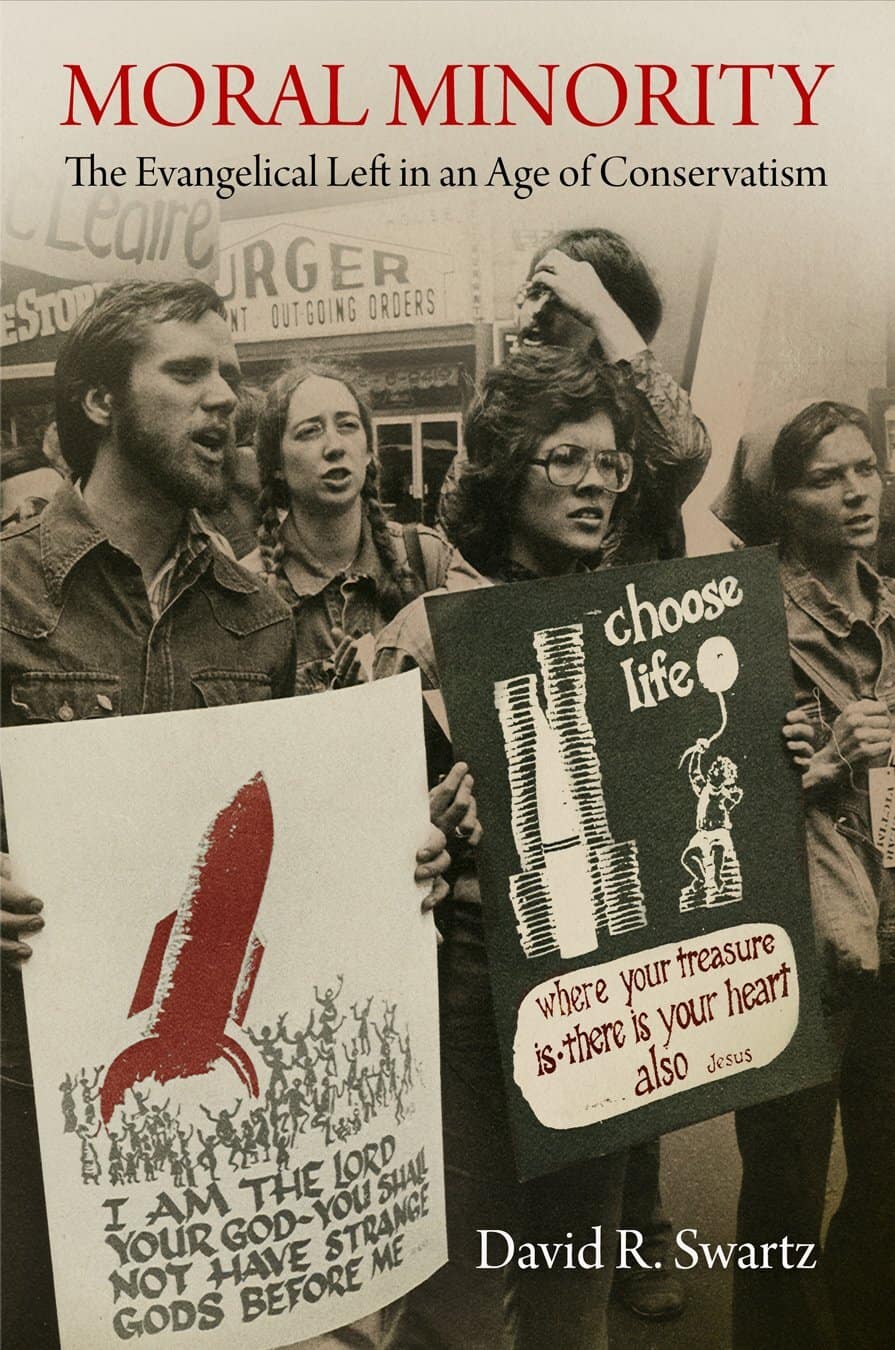
Ron Sider takes Christian leaders to Nicaragua; opposes the Reagan Administration’s funding of the Contras guerilla war against the Sandinista government. But ESA also opposes Sandinistas’ restrictions on freedom, and reports regularly on both the massacres by the Contras and the violations of Sandinistas, inviting Christians to pray and work for peace, justice, and freedom in Nicaragua.
1984
ESA raises support for sanctions against apartheid in South Africa, and sends leading black South African evangelical Moss Ntlha on a speaking tour to two dozen evangelical colleges.
1990s - Growing in Impact
ESA addresses U.S. poverty solutions, advances environmental stewardship.
1991
National Religious Partnership for the Environment launches.
1993
ESA premiers its flagship publication, PRISM magazine.
1994
ESA successfully lobbies for the Endangered Species Act, in partnership with the National Religious Partnership for the Environment.
ESA implements the Crossroads Program, for doctoral scholars studying politics, economics and sociology at the nation’s top universities. Trained to integrate biblical faith and theology with their secular academic work, each scholar writes a monograph, adding depth and sophistication to evangelical political thinking.
1996
ESA receives a major grant to build a comprehensive, holistic agenda to overcome U.S. poverty with 15 top established evangelical scholars. This work eventually leads to the publication of a scholarly volume of essays. Sider popularizes the same material in his 1999 book, Just Generosity: A New Vision for Overcoming Poverty in America.
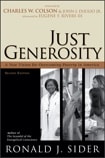
1999
ESA launches the Evangelical Environmental Network (EEN) and creates Network 9:35 for holistic ministry, a network of congregations and evangelical organizations seeking to integrate evangelism and social action at the local congregational level, solidifying its commitment to holistic ministry, which continues at the heart of CSA’s vision and work today.
2000s - ESA Joins with Eastern
ESA joins forces with Eastern University and its seminary to equip a new generation to catalyze social flourishing at both systemic and personal levels.
2002
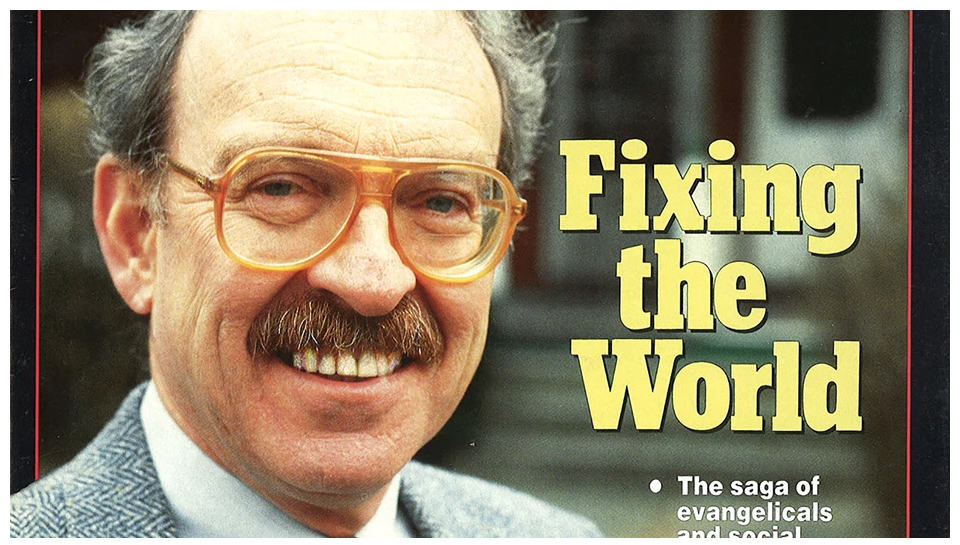
The What Would Jesus Drive? campaign for fuel efficiency is covered by all the major TV news networks and appears in thousands of newspapers across the country, communicating that if Jesus is Lord of all of one’s life, then the kind of car one drives is an ethical choice affecting the environment and future generations.
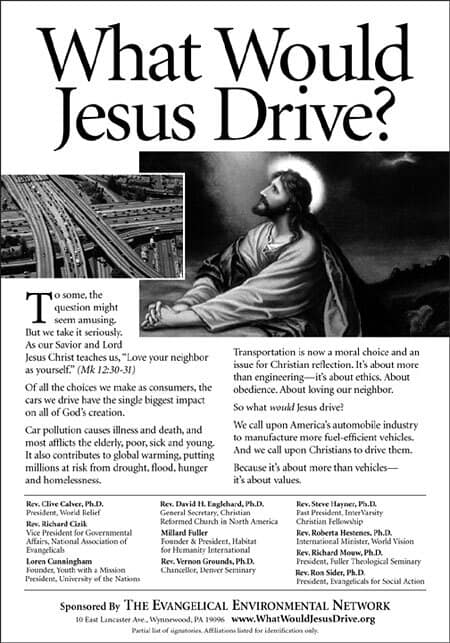
2004
“For the Health of the Nation: An Evangelical Call to Civic Responsibility” is published, outlining an official framework for evangelical political work. Ron Sider co-chairs the National Association of Evangelicals’ gathering of religious leaders, politicians, and reporters to launch this new document.
2005
ESA joins Eastern University, where The Sider Center opens to promote peaceful coexistence and social justice through theological reflection, academic programs, rigorous scholarship, and convening of timely conversations.

2010s - Looking Toward the Future
Rather than a typical “think” tank, CSA is a “do” tank that mobilizes for Christ’s shalom through constructive social change.
2011
Oriented to Love is launched, a program to promote loving dialogue on the highly divisive issue of sexual/gender diversity in the church. How can we nurture a unity that is deeper than agreement, and use this conflict as a means for maturing in Christ?

2013
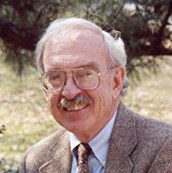
2016
ESA’s Racial Justice Institute is launched with the hiring of racial justice fellows and the creation of a one-day anti-racism training, pilgrimages to the National Museum of African American History, and the publication of The Booklet of Uncommon Prayer: Collects for the #BlackLivesMatter Movement (and beyond).
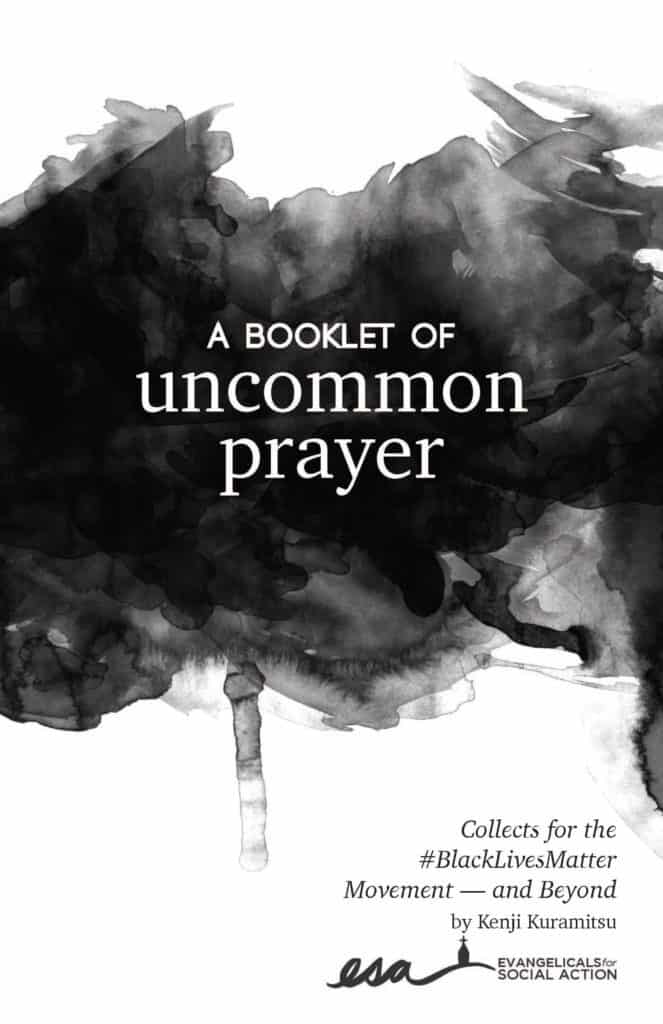
CreatureKind is launched, an ESA partner program to inform and inspire vegans, vegetarians, omnivores, farmers, fishers, and friends to learn from each other how the church can follow Christ into the reconciliation of all creatures.
2017
Nikki Toyama-Szeto hired as Executive Director, bringing faith-inspired justice experience from her work at nonprofits like International Justice Mission and InterVarsity Christian Fellowship.

2020s
ESA changes its name to CSA, Christians for Social Action, in response to its expanding audience.
2020
The COVID 19 pandemic and mass global protests against racial inequality highlight the damage and death that can be caused when injustice is not addressed. CSA jumps in by providing resources and training to those protesting. Leaders like RJI’s Andre Henry serve as an important Christian witness in these spaces.
2020
First BIPOC-only OTL dialogue
2023
CSA celebrates its 50th anniversary; Ron Sider’s and CSA’s historical materials were admitted to the Wheaton College Archives.
Oriented to Love hosts its 30th dialogue.
